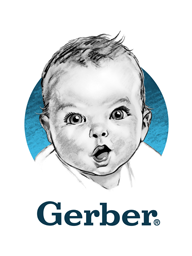Taylor Family
When Ashley’s baby was born at 23 weeks, she knew there was only one thing to do: ‘Everything possible'
The road to becoming a parent looks different for everyone. Maybe you’re not ready to start a family until you’re 37; maybe you need IVF; maybe your baby ends up in the neonatal intensive care unit (NICU). That’s how Ashley and Mitch Taylor’s story began.
After her first round of IVF, Ashley got pregnant. The pregnancy was going smoothly until one morning, at 18 weeks, Ashley’s water broke while she was getting ready for work. “I screamed at the top of my lungs to Mitch,” she recalls, and he drove her to the closest hospital, Inova Alexandria, in Virginia. “I was panicking, but I knew I had to be calm,” Mitch says. “I thought that we had lost the pregnancy.”
After being evaluated, Ashley was transported to Inova Fairfax Hospital where she was put on bed rest to help save the pregnancy. “I stayed on the third floor up here, which is for moms that are all going through the same thing—something's happened, they've had some kind of complication, and they're waiting as long as they can to have their baby,” she says.
Ashley remained there for about five weeks—five weeks of excruciating back pain and uncertainty—until she went into labor. And from there, things moved fast. “By the time I parked the car and got to the room, Julia was here,” Mitch says. “I immediately looked at my mother-in-law, and I pointed in Julia's direction and asked, ‘Is she alive?’”
Julia was born at 23 weeks and six days, weighing 1 pound, 2.3 ounces. She was 10.1 inches—small enough to fit in the palm of your hand. “I knew that I loved her more than anything from the very beginning when she came into this world and they asked me, ‘What do you want to do?’ And I said, ‘Everything possible,’” Ashley says.
Survival and outcomes for extremely preterm babies have improved, and even babies born at 23 to 24 weeks that weren’t previously considered viable are now routinely surviving due to the
development of the small baby unit—where Julia was immediately whisked away to so she could begin the fight of her life.
“As a dad, there's nothing I could do,” Mitch says. “I couldn't trade places with her. I couldn't really help her. I couldn't help her think through it … all I could do was trust. And then trust the people that were trained to do the job. That's what it's like coming into a NICU.”
For the last six months, Julia has been fighting every day to get stronger. She had a level three brain bleed, and the fluid in her brain wasn't draining how it should. So, after weeks of monitoring and daily head measurements, at week 38 neurosurgeons put a shunt into her head to help with draining that abnormal buildup of cerebrospinal fluid—which could otherwise cause the ventricles to widen, putting harmful pressure on the brain's tissues. However, the shunt got infected and needed to be surgically removed.
After a couple more weeks, including a round of antibiotics and a neck tube, Julia got another shunt put in “and she's doing phenomenal with it,” Ashley says. “And now it’s the end of June, and she is an amazing little girl with so much personality, so much passion. She's 11 pounds, 21 inches long. She's a bundle of joy.”
In Virginia, the preterm birth rate is 9.9% (according to the March of Dimes 2022 Report Card, which highlights the latest key indicators to describe and improve maternal and infant health), and the rate among Black women in the state is 52% higher than the rate among all other women. That’s why March of Dimes is in hospitals across the country, offering support and education to families with a baby in the NICU and as they transition home. “March of Dimes is an incredible organization,” Mitch says. “I wouldn't trade that type of support and those type of resources for anything else in the world when you're going through the NICU.”
Spending six months in the NICU is not how any parent imagines their pregnancy will end, but the right support can make all the difference. “Going through this NICU journey has definitely revealed to me that I'm a much stronger person than I ever would've imagined that I could have been,” Ashley adds. “Without everybody here, I have no idea where she would be. And I'm just truly thankful for everything that they did for not only me, not only Julia, but for my entire family.”





